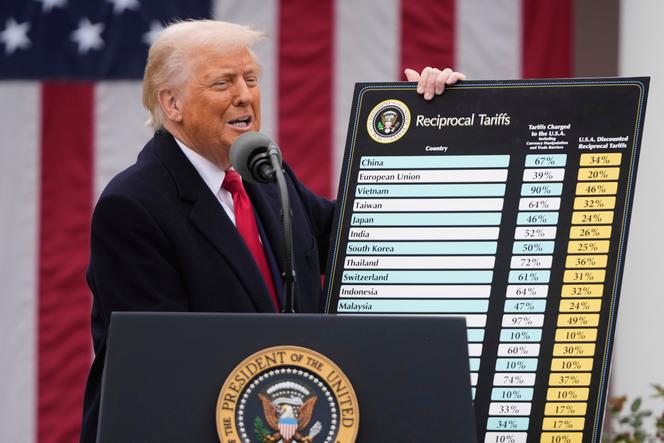Colombo, April 6 — In a dramatic turn of global trade events, the Free Trade Zone Manufacturers Association (FTZMA) has raised the alarm over a new 44% reciprocal tariff imposed by former U.S. President Donald Trump, warning that the move could deal a crippling blow to Sri Lanka’s export-driven economy.
In a strongly worded statement, FTZMA Chairman Dhammika Fernando described the development as an “economic avalanche” for the island nation, which has long relied on access to the U.S. market for key sectors such as apparel, tea, and rubber. With over 300 enterprises under its umbrella, FTZMA is urgently calling on the Sri Lankan government to respond strategically and decisively.
“This tariff wave has taken us by storm. We are looking at potential mass layoffs, factory closures, and a significant drop in foreign exchange earnings if immediate steps are not taken,” Fernando warned.
The apparel sector, Sri Lanka’s top industrial export to the United States and accounting for nearly 56% of total exports in that category, is at the heart of the crisis. The tea industry, contributing around 9%, and glove exports—Sri Lanka’s third-largest export to the U.S. at 5%—are also under severe threat. Other affected sectors include tyres, coconut products, cinnamon, and gem & jewellery, all of which face the risk of losing their foothold in the competitive American market.
FTZMA has convened an emergency session and is in active consultation with government officials to craft a mitigation plan. The association outlined a series of strategic proposals aimed at offsetting the impact and securing Sri Lanka’s trade future with the U.S.
Key recommendations by FTZMA include:
- Negotiated Tariff Reductions: Initiate diplomatic talks with U.S. counterparts to pursue reciprocal tariff reductions, possibly by lowering import duties on American goods to foster balanced trade.
- U.S.–Sri Lanka Free Trade Agreement (FTA): Propose a comprehensive bilateral FTA that includes market access, tariff relief, and investment incentives to ensure long-term economic cooperation.
- Increased Imports from the U.S.: Consider importing raw materials such as cotton and industrial machinery from the U.S. to reduce trade imbalance and build goodwill.
- Market Diversification: Explore new export markets in the EU, ASEAN, and South Asia to reduce overdependence on the U.S. and enhance global trade resilience.
- Industrial Competitiveness: Invest in innovation and sustainability to make Sri Lankan goods more competitive, especially in sectors like apparel and tea.
- Utilise GSP Concessions: Advocate for trade concessions under the U.S. Generalized System of Preferences (GSP) to cushion the blow of new tariffs.
- Public–Private Collaboration: Work closely with industry bodies and trade associations to craft a unified national trade response strategy.
- Encourage U.S. Investments: Offer incentives for American companies to set up operations in Sri Lanka’s Free Trade Zones, thereby strengthening bilateral trade links and generating local employment.
With time running out and economic uncertainty mounting, FTZMA emphasised the urgency of decisive governmental action. “This is a turning point for Sri Lanka’s trade trajectory,” said Fernando. “We must act now, with unity and vision, to shield our economy and secure our future.”
The Association remains hopeful that through diplomatic engagement and strategic repositioning, Sri Lanka can weather this trade storm and potentially emerge stronger in the global marketplace.


